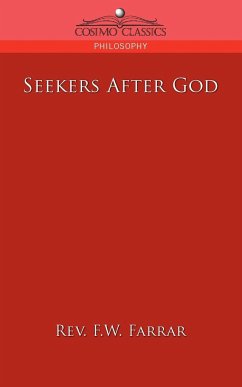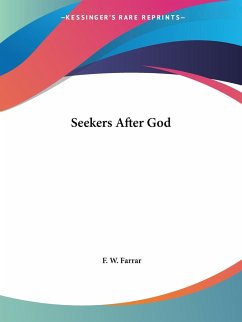The absolute silence of Seneca respecting the woman who had caused him the bitterest anguish and humiliation of his life is, as we have remarked already, a strange and significant phenomenon. It is clearly not due to accident, for the vices which he is incessantly describing and denouncing would have found in this miserable woman their most flagrant illustration... -from "Seneca's Recall from Exile" In this uncommon book, first published in 1890, one of the most prolific British writers on theology of the late 19th century offers a full account of the lives and thinking of "three great heathen philosophers": Epictetus and Marcus Aurelius, whom Farrar deems "the most clear-sighted moralists among ancient philosophers [and] with the single exception of Socrates, the best and holiest characters presented to us in the records of antiquity"; and Seneca, "because in him we can best study the inevitable signs which mark, even in the works of men of genius, a degraded people and a decaying literature." Imperious and forthright, this self-assure work is an intriguing read for those interested in philosophy, ancient history, and Christian metaphysics. British theologian FREDERIC WILLIAM FARRAR (1831-1903) was chaplain to Queen Victoria from 1871 to 1876. Among his many works are The Life and Works of St Paul (1879) and The Early Days of Christianity (1882).
Hinweis: Dieser Artikel kann nur an eine deutsche Lieferadresse ausgeliefert werden.
Hinweis: Dieser Artikel kann nur an eine deutsche Lieferadresse ausgeliefert werden.








